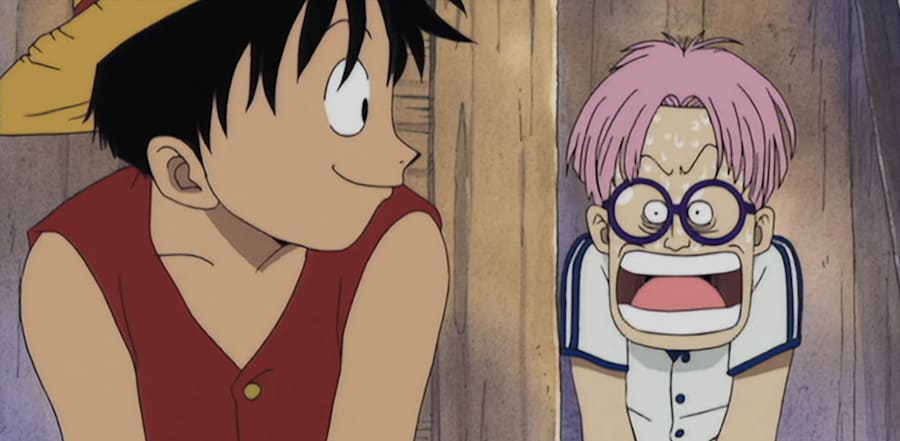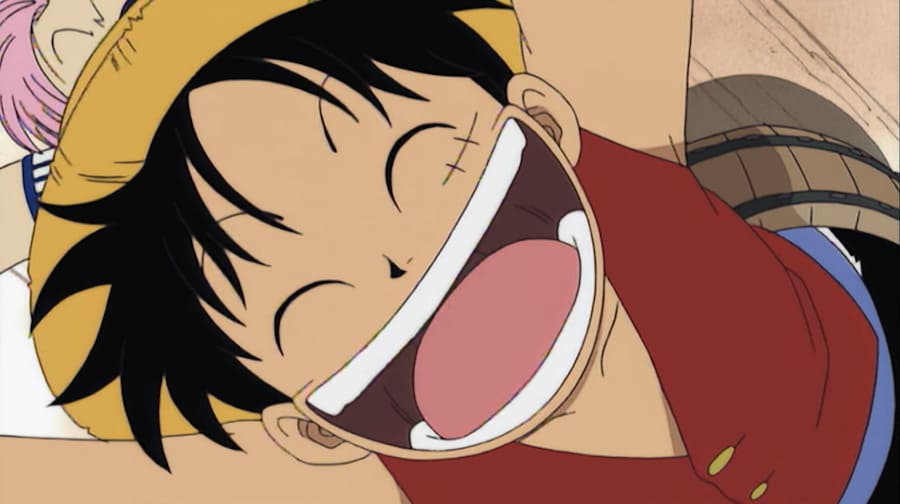In this article, I will explain Japanese grammar and vocabulary based on Luffy’s line “海賊王に俺はなる”.
Let’s have fun learning Japanese through ONE PIECE!
The Basic Information of The Line
The basic meaning
in Japanese: “海賊王に俺はなる”
in Hiragana: “かいぞくおうにおれはなる”
in Romaji: “Kaizoku ou ni ore wa naru”
Meaning: “I’m going to become the King of the Pirates”
The situation in which the line was spoken

At first, Luffy said this line in the very first episode of One Piece. Luffy mistakenly boards an enemy pirate ship, where he meets a young boy named Coby. Coby asks Luffy why he is traveling the sea. In response, Luffy says this line, “I’m going to be the Pirate King.
Grammatical Structure
海賊王 (かいぞくおう / kaizoku-ou)
This is a compound noun. “海賊” means “pirate” and “王” means “king“. Together, they form the noun “Pirate King“.
に (ni)
This is a particle that can have several functions, but in this context, it indicates a direction or goal towards which an action is aimed. In English, it can be likened to “to” or “towards” when speaking about a goal or objective.
俺 (おれ / ore)
This is a first-person singular pronoun, equivalent to “I” or “me” in English. It’s a bit casual and is often used by males in everyday speech.
は (wa)
This is the topic marker particle. It’s often pronounced “wa” in speech, even though it’s the “ha” character. It indicates the topic of the sentence. In this case, the topic is “おれ” or “I”.
なる (naru)
This is a verb meaning “to become“.
General Use in Everyday Conversation
Casual Usage
The phrase “海賊王におれはなる” means “I will become the Pirate King.”
This is a very specific and determined statement, so in daily conversation, it’s not something people would generally say unless they’re referencing the popular manga and anime series “One Piece,” where the main character, Monkey D. Luffy, frequently uses this phrase to express his ambition. In daily conversations among friends or peers who understand the reference, it could be used humorously or passionately to express a strong determination to achieve a goal.
Polite Usage
If you were to make this phrase more polite while maintaining its meaning, you’d have to change the pronoun and the verb form:
- Replace “おれ” (ore) with “私” (watashi) for a more neutral and polite first-person pronoun.
- Use the polite verb form “なります” (narimasu) instead of the plain form “なる” (naru).
So, the polite version would be: “海賊王に私はなります” which translates to “I will become the Pirate King.”
Watashi vs Boku vs Ore – Differences between “I” terms in Japanese.










Related articles
No articles found.